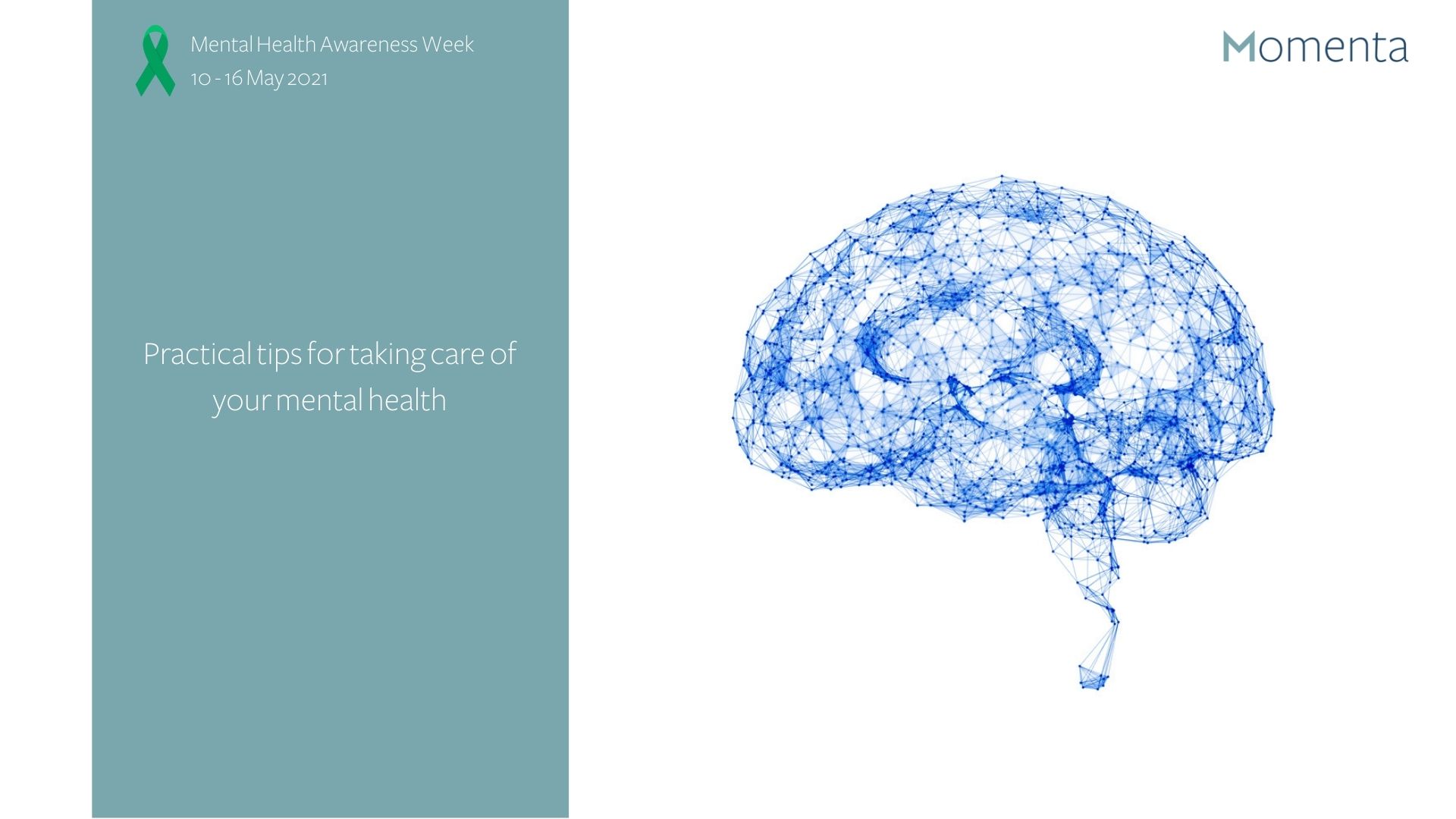Practical tips for taking care of your mental health
As we celebrate and raise awareness of the key-themes during mental health week, we wanted to take time during this latest Momenta insight to consider the importance of positive mental health and to explore how we can embrace and adopt positive methods to take care of our mental wellbeing.
It’s safe to say that we have all experienced additional forms of stress caused by the pandemic during the past year, with new personal and professional norms being created along the way.
In this article, we have compiled a list of some useful tips you can practice to ensure that you are doing the most for your mental health.
But first, let’s look at what is mental health is, and its importance in your daily life.
So, what is mental health and why is it important?
Many tend to define mental health as being tied to only the psychological aspects of our lives, but it is a combination of internal and external factors.
The World Health Organisation defines mental health as “a state of well-being in which the individual realises his or her own abilities, can cope with the normal stresses of life, can work productively and fruitfully, and is able to make a contribution to his or her community[1]“.
This means that a combination of the social, psychological, and emotional wellbeing of an induvial must be taken into consideration when addressing matters relating to mental health.
Taking care of your mental health is just as important as taking care of your general physical health as it can have serious implications on all aspects of your life if not addressed or maintained properly.
Sometimes stress can cause an overwhelming feeling of anxiety and it can be difficult for many to circumnavigate. So, what can you do if you are feeling stressed or you’re not sure how to get out of a negative mindset?
- If you are feeling overwhelmed seek help: If you are feeling like you are not sure what to do or what steps you should take – The first step towards taking care of your mental health is to try to find help when you are struggling. This can be talking to a close friend, a loved one, or seeking out medical professional help. If you are in urgent need of care, hotlines like the Samaritans in the UK or Mental Health America if you’re in the US, can be reached at any time.
- Recognising struggle signs: It’s important to distinguish between a bad day (which is completely normal to have) and a bad period of feeling like your mental health is at risk. Recognising the signs of poor mental health such as anger, anxiety attacks, and depression can give you a good indication of the type of help you could need (you can see a full list of the different types of potential mental health diagnoses here). Many experts recommend recording your own feelings and experiences in the form of a diary or a journal which can help you identify when you feel things are not quite right.
- Stepping out in nature does make a difference: It’s certainly no coincidence that nature is the theme for this year’s Mental Health Awareness Week. Nature is so central to our psychological and emotional health, that it’s almost impossible to realise good mental health for all without a greater connection to the natural world[2]. So, when you are feeling a little down or overwhelmed, a walk in the open-air can-do wonders to elevate your mood.
- Looking after your physical health will in turn look after your mental health: Being active is imperative to maintaining good mental health, and the two are very much interlinked. The Mental Health Foundation states that research shows that doing exercise influences the release and uptake of feel-good chemicals called endorphins in the brain. Even a short burst of 10 minutes brisk walking increases our mental alertness, energy, and positive mood.
- Begin your mindfulness journey: Mindfulness can come in many shapes and forms and can-do wonders in improving your mental health. The two most popular that have been studied in detail (and which are closely linked) are the practices of mindfulness and meditation. As well as decreasing stress, these techniques have been proven to improve mental health and wellbeing. You can read up on other advice and tips here.
- Sleep is key: Sleep does wonders for the body, especially the brain. Good sleeping habits can perpetuate good mental health habits and by doing so, you can help to take care of both your physical and mental wellbeing.
During this mental health awareness week, it’s important that we all take time to ensure that we are actively looking at ways in which to improve and maintain our mental health.
It is only natural to feel overwhelmed and stressed at times in our lives, and so making sure that you are taking time out for your general wellbeing and recognising the signs where you need help, or just someone to talk to, can be vital in maintaining a healthy mental balance.

